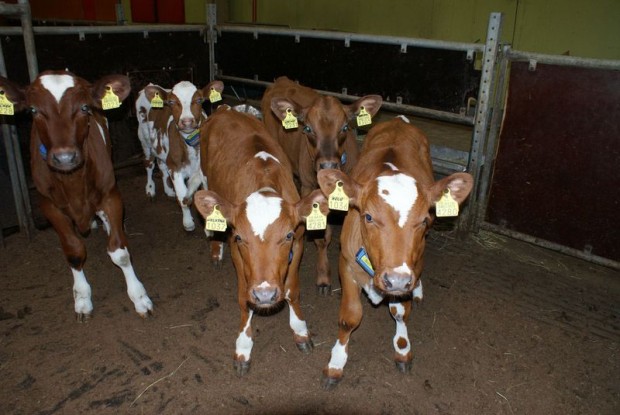Animals produce methane, it certainly happens. They burp, fart, and poo contributing to one of the most powerful greenhouse gases in the atmosphere. It’s an age-old fact, and it’s one that many of us just accept and then move on with our lives.
Apparently, researchers are working towards limiting serious amounts of methane production thanks to selective breeding patterns. According to a team of scientists spread thin across the globe, findings suggest that the trait can certainly be bred out of animals.
Belching is actually one of the biggest issues when it comes to methane production, who would have thought? The researchers found that the act is consistent for each animal they studied. Because it is a consistent trait, researchers believe they will be able to breed animals that belch less- ultimately lowering the levels of methane.
Of course, the researchers are fueled by more than just a desire to help the environment. Breeding cows and other animals that produce less methane will also increase their general efficiency. Apparently, the team discovered that 2% to 10% of an animal’s total energy is wasted on methane production. If they can successfully breed animals that belch less, it will also mean they’ll require less energy thus lowering costs associated with feeding the animals.
“Methane production is important for cattle and sheep farmers because if the amount of methane produced can be lowered then there are benefits for the environment, production, and profitability.” – Professor John Wallace, study leader at the University of Aberdeen Rowett Institute of Nutrition and Health
It’s all part of a $10 million project that’s focused on efficiency when it comes to animals. Now, they’re going to increase the number of animals for their project (nearly 1,400) so that they can determine how genetics factor into the situation. Can methane production and belching be attributed to simple genetics? I guess we’ll find out.
I wonder if there’s a way to breed humans that burp and fart less? I’m related to quite a few people that would benefit from such studies.
Yes, this was a strange story but I found it rather interesting in an odd sort of way. What do you think? Of course, I am aware that this information poses quite a few questions, and there are plenty of other ways to lessen global warming.
[via The Verge, University of Aberdeen]

 Email article
Email article




